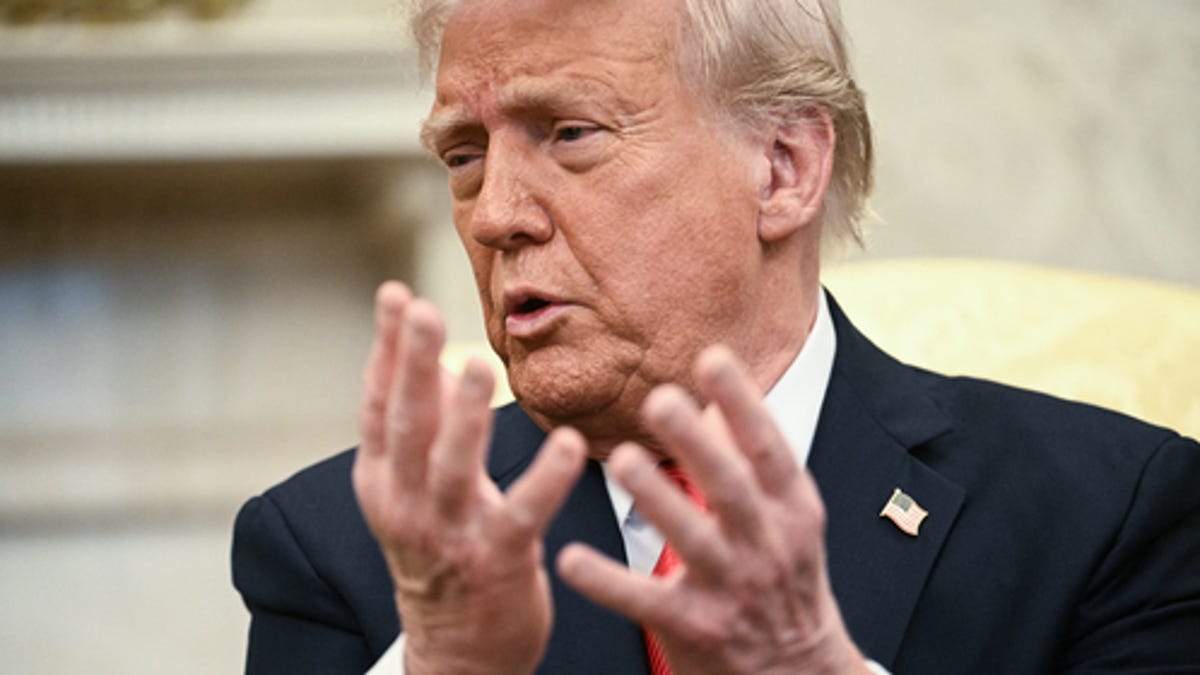Trump smartphone tariff measures ‘coming soon,’ Lutnick says
Commerce Secretary Howard Lutnick said that tariffs on smartphones and other electronics would come “soon.”
WASHINGTON ― President Donald Trump said he’s considering temporary exemptions from his 25% tariffs on the auto industry to give car companies more time to transition to manufacturing in the U.S.
Trump’s April 14 remarks from the Oval Office came after his administration had excluded smartphones, computers and other electronics from his steep reciprocal tariffs in a move his economic aides said is only temporary.
“I’m looking at something to help some of the car companies, where they’re switching to parts that were made in Canada, Mexico and other places,” Trump told reporters. “And they need a little bit of time, because they’re going to make them here.”
An exemption on some auto tariffs ‒ which include 25% levies on all foreign cars and light trucks as well as some auto parts ‒ could be a major reprieve for automakers as the industry grapples with tariffs that threaten to raise prices of cars for American consumers. Stock shares of the three largest U.S. automakers, Ford, General Motors and Stellantis, shot up after Trump’s comments.
The tariffs on foreign vehicles went into effect April 3. The levies on foreign auto parts, including transmission and engines, go into effect not later than May 3.
Automobiles that fall under the umbrella of imports protected in the Canada-United States-Mexico Agreement ‒ a trade deal orchestrated by Trump in his first term ‒ are not subject to the full 25% tariff rate. Instead, the Trump administration only placed tariffs on foreign parts that make up vehicles imported from Canada and Mexico.
Trump has argued his aggressive tariffs are needed to rejuvenate U.S. manufacturing including in the auto industry.
“We have millions of their cars ‒ BMW, Volkswagen, Mercedes, Benz, many others,” Trump said, pointing to German-made cars as an example. “There are no Chevrolets in Munich, I can tell you that.”
The Trump administration on April 11 exempted many tech products from 125% tariffs on China and a 10% universal reciprocal tariff on imports from other countries. The reprieve is a boost for Apple Inc., which manufactures most of its products in China including the popular iPhone, as well as other tech giants like Microsoft and Samsung Electronics
However, the exempted imports remain subject to 20% tariffs Trump imposed on China to pressure Beijing to crack down on the manufacturing of fentanyl. Trump’s top economic aides also said the exemptions are short-term, with plans to target the products in upcoming tariffs on semiconductors that Trump has promised.
It’s unclear whether Trump is exploring a short-term tariff exemption on auto parts, foreign cars or both. The move would continue what’s been a whiplash approach to imposing levies on imports ‒ uncertainty that has rattled global markets.
“Look, I’m a very flexible person. I don’t change my mind, but I’m flexible,” Trump said. “And you have to be. You just can’t have a wall Sometimes you have to go around it, under it, or above it.”
To defend Trump’s tariff agenda, the White House touted the tech firm Nvidia’s plans announced April 14 to build its first U.S. factories to make AI supercomputers, with the company committing to produce $500 billion in AI infrastructure.
Amid an escalating U.S.-China trade, war, China’s President Xi Jinping and Vietnam’s top leader, To Lam, signed dozens of cooperation deals Aprl 14 to strengthen the trade alliance between the two communist-run countries.
“I don’t blame China, I don’t blame Vietnam. I see they’re meeting today. Isn’t that wonderful? That’s a lovely meeting,” Trump said on April 14, adding they’re “trying to figure out, how do we screw the United States of America?”
Reach Joey Garrison on X @joeygarrison.
